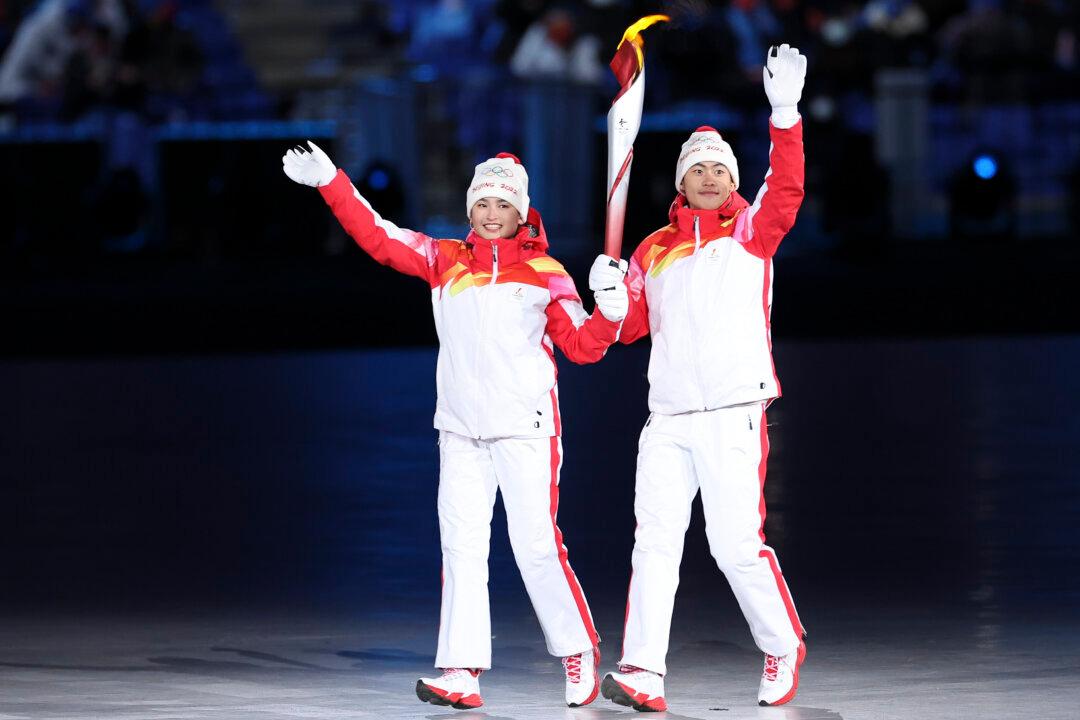The 20-year-old skier, Dinigeer Yilamujiang, joined Chinese athlete Zhao Jiawen to deliver the flame during the opening of the Games, prompting speculation that the Chinese Communist Party might have sought to mitigate worldwide perceptions about the regime’s repression of the Uyghurs by featuring a Uyghur in such a prominent and symbolic role.
The regime’s messaging was typified in a tweet sent out by Zhang Zisheng, China’s general consul in Zanzibar and Tanzania, who said, “Happy to see Ms Dinigeer Yilamujiang a Chinese Uyghur athlete lit the Olympic Cauldron with Zhao Jiawen! All the 56 Chinese ethnic groups are members in a big family, all together!”
Kamaltûrk Yalqun, a Uyghur who carried the flame for China for the 2008 Beijing Olympics, described the move as a “public relations play by China.”
“We and the other ethnic minorities in China have long been this propaganda device for Chinese state media. [The tactic is] to dress them up whenever these kinds of big events happen, to dress them up in their ethnic clothes and let them sing and dance and show their happy faces and ethnic community and all that to the world and also internally to Chinese citizens,” Yalqun, who now resides in Boston, told The Epoch Times.
By choosing a Uyghur athlete to help light the Olympic flame, the ultimate honor for any Olympian, China had “elevated this status of puppetry to a higher degree,” he said. The move was made due to the rising international pressure over Beijing’s genocidal activities against Uyghurs and other Muslim minorities in the far west Xinjiang region, Yalqun added.
The chair of the tribunal, Geoffrey Nice, went to lengths to detail widespread and chronic torture, sexual abuse, humiliation, and extrajudicial killings in prisons holding Uyghur men, women, and children. Nice alluded to the Genocide Convention of 1948, which is aimed at protecting national, ethnic, and religious groups from extermination, to support his classification of what is going on in western China as genocide rather than simply mass incarceration or repression.
In reaction to such human rights concerns, the United States and other nations announced diplomatic boycotts of this year’s Olympic Games, though some observers have questioned how effective such a boycott would be in the long term.





